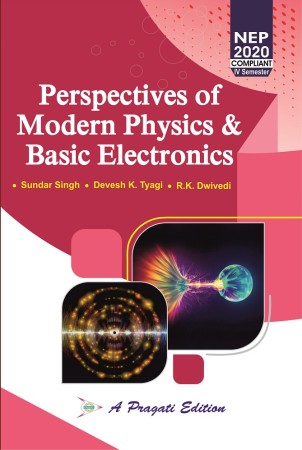
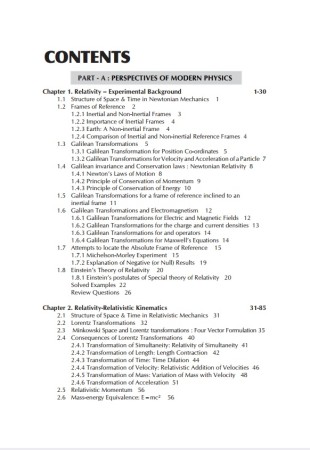
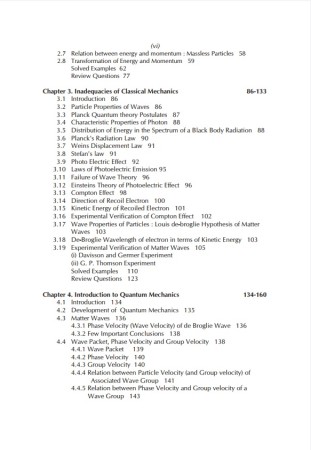
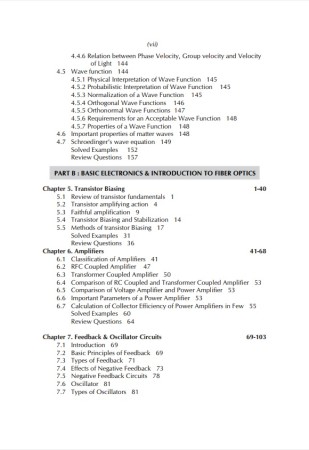
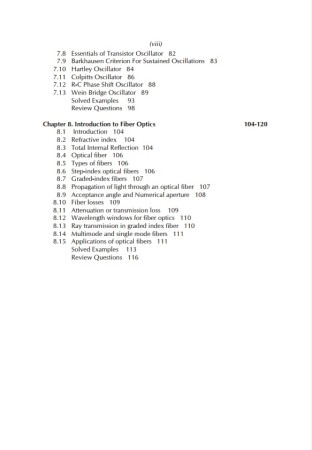





0 Reviews
2947 Views
The National Education Policy-2020 (NEP-2020) is built on the foundational pillars of Access, Equity, Quality, Affordability, and Accountability and i .... Read More
Price: 251295
You Save 44 15% off
Price: 266295
You Save 30 10% off
*Buy both at: 472 590
You Save 118
20% off
The National Education Policy-2020 (NEP-2020) is built on the foundational pillars of Access, Equity, Quality, Affordability, and Accountability and is aligned with the 2030 agenda for sustainable development. NEP-2020 has been introduced for the most part in the Indian education system from the academic session 2022-2023. To incorporate its provisions in higher education, a common minimum syllabus has been prescribed for all the subjects, including Physics, and is made applicable for all U.P. State Universities and Colleges from the academic session 2022-2023. This new syllabus has created the space for the development of books that have been written to prepare their readers to fulfill the goals and aspirations of NEP- 2020.
| Sr | Chapter Name | No Of Page |
|---|---|---|
| 1 | PART - A : PERSPECTIVES OF MODERN PHYSICS, Chapter 1. Relativity – Experimental Background | 30 |
| 2 | Chapter 2. Relativity-Relativistic Kinematics | 55 |
| 3 | Chapter 3. Inadequacies of Classical Mechanics | 48 |
| 4 | Chapter 4. Introduction to Quantum Mechanics | 27 |
| 5 | PART B : BASIC ELECTRONICS & INTRODUCTION TO FIBER OPTICS, Chapter 5. Transistor Biasing | 40 |
| 6 | Chapter 6. Amplifiers | 28 |
| 7 | Chapter 7. Feedback & Oscillator Circuits | 35 |
| 8 | Chapter 8. Introduction to Fiber Optics | 35 |